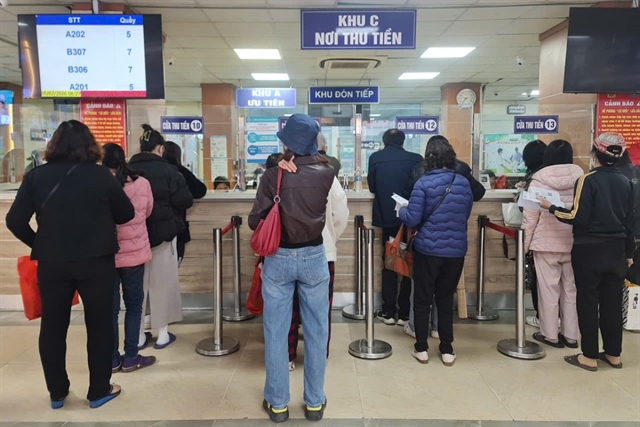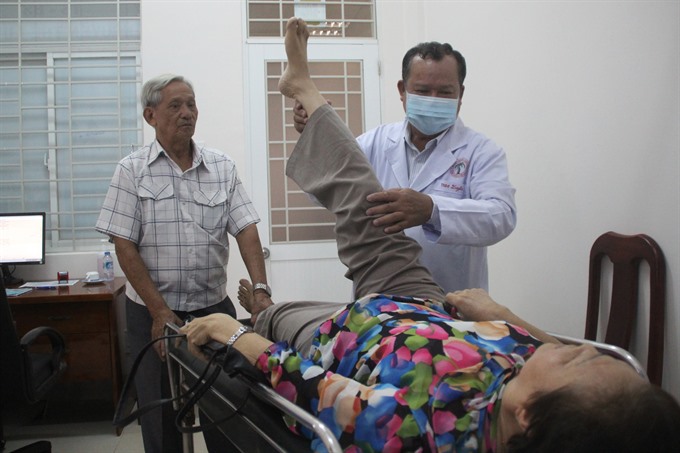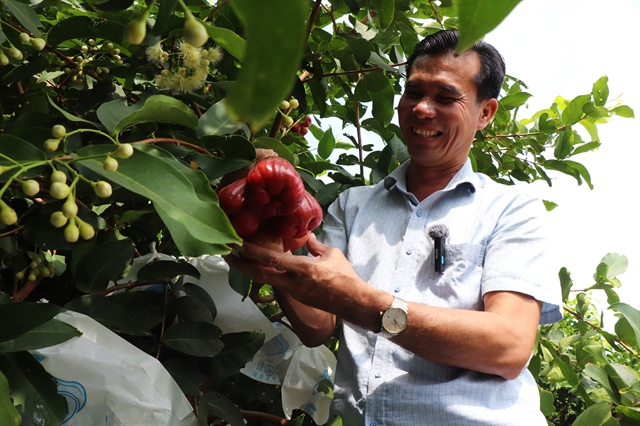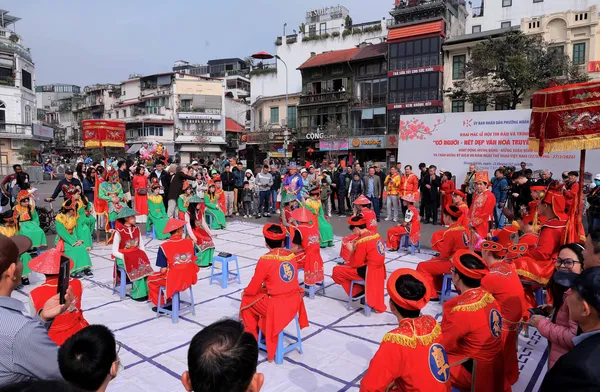 Society
Society

Many heath facilities are being developed in HCM City’s neighbouring Đồng Nai Province, especially in rural areas, to improve convenience for the public.
 |
| A doctor treats a patient at a rural health clinic in Đồng Nai Province. – VNA/VNS Photo Lê Xuân |
HCM CITY — Many heath facilities are being developed in HCM City’s neighbouring Đồng Nai Province, especially in rural areas, to improve convenience for the public.
On Monday the Long Khánh Regional General Hospital in Long Khánh District opened four clinics called Health Experts, where doctors from HCM City hospitals will treat patients.
Phan Văn Huyên, the hospital’s director, said this would help reduce the crowding at HCM City hospitals, where many people from neighbouring provinces go for quality treatment.
Dr Nguyễn Thế Luyến of the trauma and orthopaedics department at HCM City’s University Medical Centre said for instance that patients from other provinces and cities make a beeline for his hospital, with many arriving at 3am to beat the queue.
The visit by experts from HCM City’s hospitals to the Health Experts clinics in Long Khánh would also enable young doctors there to learn from them, Huyên said.
The clinics treat vascular-heart, spine- bone and joint, gastroenterological, and liver problems on Mondays, Wednesdays, and Fridays every week.
In June last year the province People’s Committee announced an action plan for a project to develop grassroots health facilities.
It plans to earmark more than VNĐ3 trillion (US$131.6 million) for the programme.
Last year a health centre was opened in Tân Phú District besides nine more health stations, according to the Department of Health.
Besides, new departments to treat infectious diseases and newborn babies were opened at the province Paediatrics Hospital in Biên Hoà City.
All health stations in communes and wards had doctors last year, which increased the ratio of doctors to 7.5 per 10,000 population, the department said.
There were 27.5 beds per 10,000 people last year, it added.
Doctors at district health centres perform various kinds of surgeries. Obstetric surgeries have, for instance, been performed at health centres in the districts of Vĩnh Cửu, Trảng Bom and Nhơn Trạch.
Phan Huy Anh Vũ, deputy head of the Department of Health, told Đồng Nai newspaper this was the result of Project 1816, under which central hospitals send doctors to train and work for a period in smaller hospitals around the country.
"But the district health centres need to learn more sophisticated techniques," he admitted, suggesting that the Ministry of Health should allow them to choose hospitals in the province and elsewhere to learn advanced techniques.
"Many of the hospitals and doctors designated by the ministry to train them are very busy and the training is delayed," he explained.
Dr Hồ Thanh Phong, director of the Nhơn Trạch District Health Centre, said his centre focused on developing various surgical techniques.
It would build one more operating theatre with advanced equipment to speed up treatment, he said.
The centre now has only one theatre. It sends its doctors to other hospitals including the District 2 Hospital in HCM City to learn surgical and anaesthetic techniques.
Not only obstetric surgeries but also other operations to treat trauma and orthopaedic problems are performed at the centre, according to Phong.
Last year more than 250 patients received surgeries between June and year-end. — VNS




